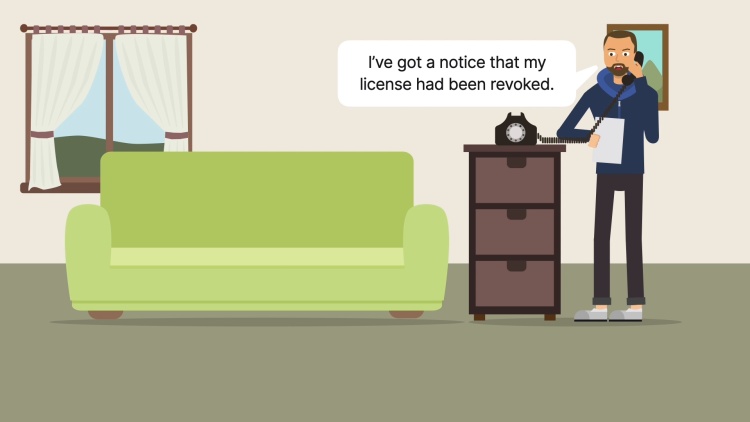State v. Fridley
North Dakota Supreme Court
335 N.W.2d 785 (1983)
- Written by Craig Conway, LLM
Facts
During a traffic stop for speeding, police officers conducted a routine check of Gaylord Duane Fridley’s (defendant) driver’s license and learned that it had been revoked. Fridley was arrested and charged with driving with a revoked license, a class B misdemeanor and strict-liability offense. Prior to trial, the prosecution filed a motion in limine to prevent Fridley from introducing evidence at trial of his telephone conversation with a driver’s license division (division) employee named Debbie. During a hearing on the motion, Fridley testified that Debbie told him that in order to obtain a work permit to drive, Fridley was required to take the driver’s test and forward the appropriate documentation and payment to the division. Fridley further testified that Debbie told him that while the paperwork was being processed, Fridley would be without a license for seven days. Fridley stated that he interpreted the conversation with Debbie to mean that he was permitted to drive in the interim. Fridley argued that he intended to introduce the evidence of his conversation with Debbie to raise a mistake-of-law defense at trial. The trial court granted the prosecution’s motion, denying Fridley’s request to introduce the evidence. The trial court held that the statements made by Debbie would be hearsay and did not qualify as an official interpretation of the law defining driving while one’s license is revoked. The trial court also denied Fridley’s request for a jury instruction on his mistake-of-law defense. After a trial, Fridley was convicted and he appealed.
Rule of Law
Issue
Holding and Reasoning (Paulson, J.)
What to do next…
Here's why 906,000 law students have relied on our case briefs:
- Written by law professors and practitioners, not other law students. 47,100 briefs, keyed to 996 casebooks. Top-notch customer support.
- The right amount of information, includes the facts, issues, rule of law, holding and reasoning, and any concurrences and dissents.
- Access in your classes, works on your mobile and tablet. Massive library of related video lessons and high quality multiple-choice questions.
- Easy to use, uniform format for every case brief. Written in plain English, not in legalese. Our briefs summarize and simplify; they don’t just repeat the court’s language.







